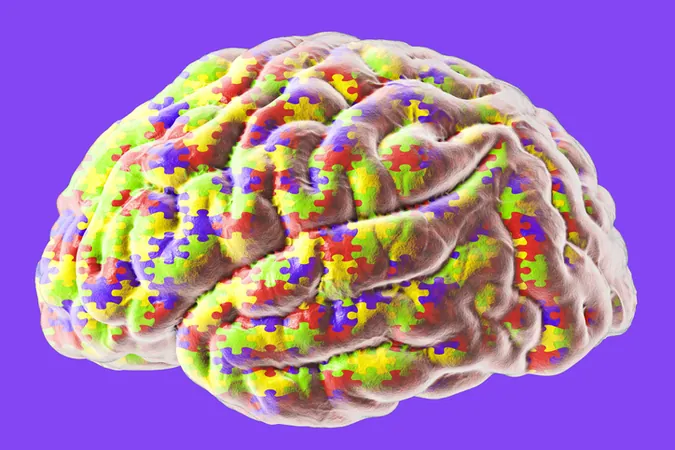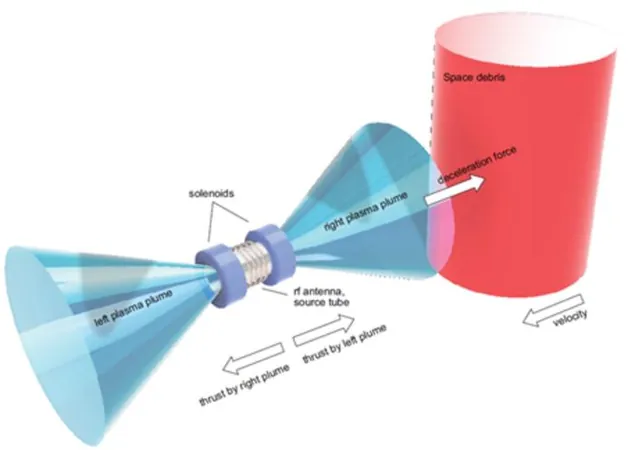
Unlocking the Mystery: How Autism Genes May Have Boosted Human Evolution
2025-09-10
Author: Mei
Autism Genes: A Surprising Evolutionary Advantage?
Research has unveiled a fascinating perspective: genes associated with autism spectrum disorder (ASD) might have provided evolutionary benefits to early humans. This groundbreaking study, published in *Molecular Biology and Evolution*, shifts our understanding of neurodiversity and raises intriguing questions about the role of natural selection in human uniqueness.
A Brain in Transition: Slower Development, Greater Capacity
The study suggests that a swift rise in genes linked to autism may have had a significant impact on brain development post-birth. Rather than merely leading to delays, these genes could have facilitated advanced cognitive skills or enhanced language capabilities. This theory may help clarify why autistic traits appear in approximately 1 in every 100 children today, a stark contrast to their rarity in our primate relatives.
Lead author Alexander Starr, a PhD student at Stanford University, notes, "Our results indicate that the genetic changes making the human brain distinctive also contribute to our neurodiversity."
Neurons and Evolution: Unraveling the Complexity
The mammalian brain is rich with diverse neuronal cell types. While some neuron types have remained stable throughout evolution, the mechanisms behind variations in their evolution speed remain largely a mystery. Studies across species show that most neocortical neuron types are conserved, with few being exclusive to primates, highlighting the uniqueness of human brain evolution.
Mapping the Neocortex: Evidence of Selection Pressure
Starr's team analyzed cross-species genomic data and unearthed a strong connection between the abundance of neuronal cell types and their evolutionary divergence. They discovered that more common neuron types underwent less change over time, suggesting they are under stricter natural selection. This relationship persisted across multiple datasets from various mammalian species.
ASD and Human Cognition: The Role of Specific Neurons
ASD is particularly associated with layer 2/3 intratelencephalic excitatory (L2/3 IT) neurons, crucial for communication within the neocortex and facilitating cognitive abilities unique to humans. Surprisingly, these neurons displayed rapid evolutionary changes in the human lineage, with significant downregulation of genes linked to ASD and schizophrenia—conditions prevalent in humans yet rare in other primates.
Natural Selection and Fitness Benefits: A Complex Interplay
Ultimately, the findings support the theory that human evolution has been influenced by natural selection favoritism toward specific traits, potentially increasing the incidence of certain disorders like ASD. While researchers suggest that downregulation of these genes might have conferred advantages by promoting slower brain development or language skills, the underlying reasons remain elusive. This enigma opens new avenues for understanding how genetic dynamics may have shaped our evolutionary path.
A Balancing Act: The Interplay of Genes and Environment
The relationship between ASD-linked genes and their expression may also reflect a need to balance other traits essential for human adaptation, like increased brain size or metabolism. As researchers continue to untangle these complex genetic interactions, our understanding of human evolution and neurodiversity may forever change.






 Brasil (PT)
Brasil (PT)
 Canada (EN)
Canada (EN)
 Chile (ES)
Chile (ES)
 Česko (CS)
Česko (CS)
 대한민국 (KO)
대한민국 (KO)
 España (ES)
España (ES)
 France (FR)
France (FR)
 Hong Kong (EN)
Hong Kong (EN)
 Italia (IT)
Italia (IT)
 日本 (JA)
日本 (JA)
 Magyarország (HU)
Magyarország (HU)
 Norge (NO)
Norge (NO)
 Polska (PL)
Polska (PL)
 Schweiz (DE)
Schweiz (DE)
 Singapore (EN)
Singapore (EN)
 Sverige (SV)
Sverige (SV)
 Suomi (FI)
Suomi (FI)
 Türkiye (TR)
Türkiye (TR)
 الإمارات العربية المتحدة (AR)
الإمارات العربية المتحدة (AR)